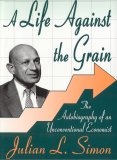
Contrary to propaganda, Pfizer et al. would be happy to sell into the Indian market at below average cost -- it's gravy to them. What prevents them is not The Evil Corporate Overlords Trying to Make All the Third World People Die, it's the US government. Drug companies used to, in fact, do exactly this, but this gave grandstanding Democratic politicians a platform to decry the drug companies who were Profiteering Off the Backs of Hard Working American Citizens. Now the drug companies don't sell many drugs to the third world, and less developed nations get crappy generics made in often questionable conditions. Everyone wins.
In the early 1990s, angered by coincident downsizings and reports of large executive payouts, Congress ended the deductibility of executive salaries above $1 million. Before the change, all salaries paid to workers and executives were deductible from a company's taxable income. The new law penalized companies that paid outsized salaries to their top five officers. If General Motors wanted to pay its CEO $5 million, $4 million of that sum would no longer be tax deductible. Assume a 40 percent tax rate for companies (as compensation consultant Pearl Meyer & Partners does) and that $4 million would cost GM an extra $1.6 million.
But the measure excluded from the $1 million limit items that the Internal Revenue Service deems to be incentive-based or performance-based. As a result, the ban encouraged companies to funnel executive compensation into these murky areas, which are far more difficult for investors and the public to understand, and which are prone to abuse. Indeed, the ban created tax-based incentives for companies to craft some of the pornographic CEO compensation practices that helped get us into the current mess.
If FDA officials err on the side of under-caution in approving an unsafe drug, they are attacked by the media and patient groups, and investigated by Congress. Their victims, sick and dead people, are highly visible. If FDA officials err on the side of over-caution, keeping a safe and effective drug off the market, who's to know? The victims are invisible.
For example, neither the Americans who get sick or die from meningitis C this year, nor their loved ones, will know that their illness or death could have been prevented had it not been for errors by FDA officials.
It's a no-brainer to figure out which error FDA officials prefer to make. If you conclude they have a bias toward errors that create invisible victims, who don't know whom to blame for their illness or death, step to the head of the class. By the way, FDA conduct demonstrates that the admonition, "One can never be too safe," is something we should take with a grain of salt.
If we are going to hold business executives personally liable for the accuracy of accounting statements, it is only fair to apply the same standard of accountability to government executives. The president and OMB director must be made criminally liable for the accuracy of the government's budget, the Cabinet secretaries for the accuracy of their department budgets and trust funds, and members of the House and Senate for the accuracy of figures issued by the Congressional Budge Office and Joint Tax Committee.
Differences in labor productivity are not just a matter of how hard people work. Workers in more affluent countries typically have more and better machinery, training and managerial organization. To the extent that multinational corporations come in and introduce more advanced ways of producing, Third World people not only have more jobs today, but more experience in modern methods that can pay off for the country as a whole in the future. Of course, these corporations make a profit or they couldn't stay in business, but low-wage countries have no special attraction.
What the poor in the Third World need are more multinational corporations coming in -- and fewer economically illiterate activists indulging their own emotions and egos.
The hours are long, the wages are low and the conditions hazardous, yet Bangladeshi women are finding their garment industry wages provide them visibility and even authority in a society that once ignored them.Three cheers for cheap, unregulated, Third World labor!
Fluor spokesman Gary Groat said the base toll could be $1, with higher prices charged during rush hours, and lower prices in the middle of the day or at night.Not everyone is clear on the concept, though, that everyone would be made better off:
"I think the book is still open as to whether pricing these things really works," Anderson said. "And there's the equity issue. There are people for whom dropping four bucks to save a half-hour is not a problem. But there are others in our society for whom four or eight dollars a day for a commuter trip could be a budget breaker."Spotted via Discriminations.